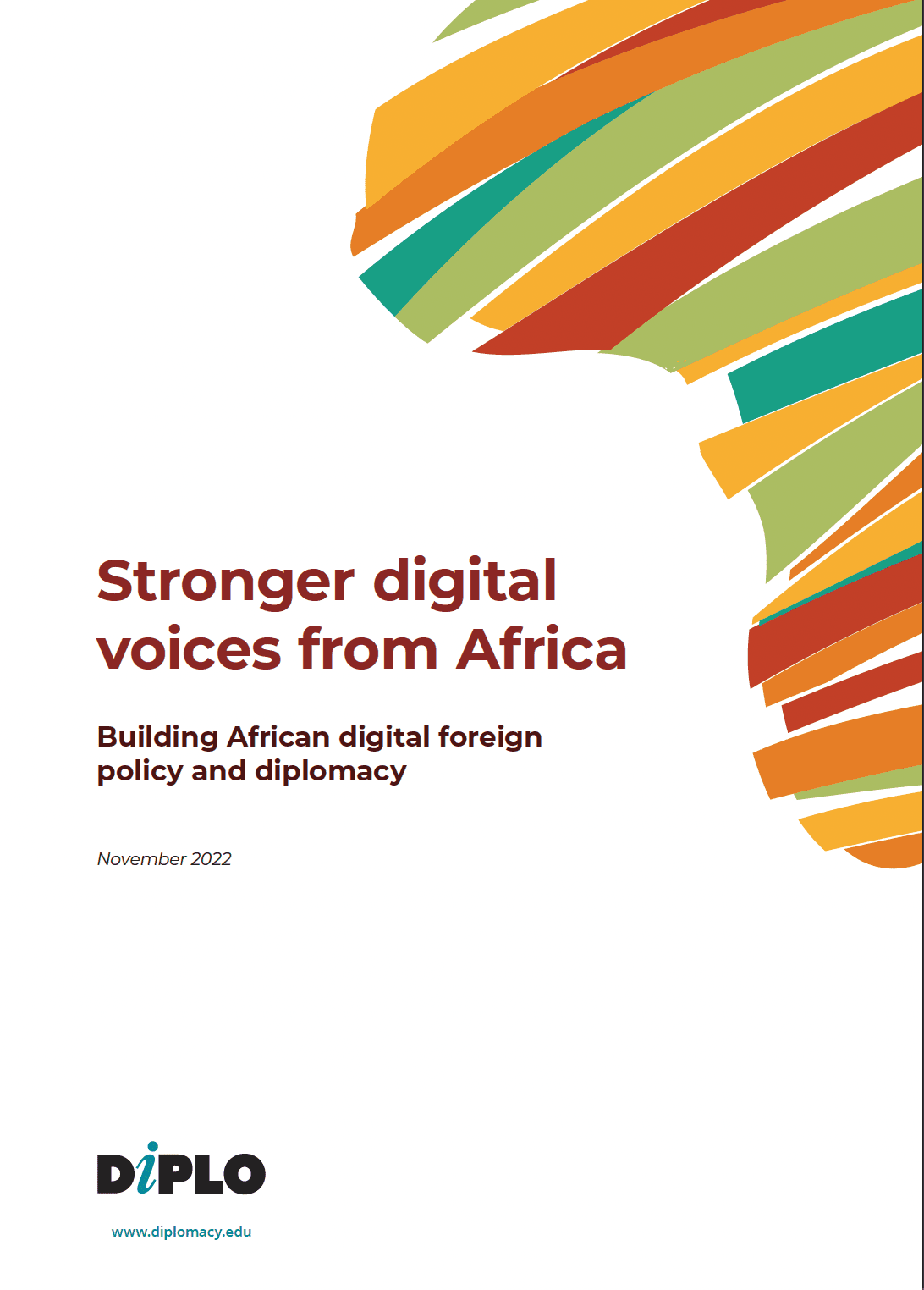Digital policy at the UNGA General Debate: Africa’s contributions
Read full report Stronger digital voices from Africa: Building African digital foreign policy and diplomacy.
Digital policy at the UNGA General Debate
Every year, the United Nations General Assembly (UNGA) includes a General Debate (GD) section that sees heads of states or other high-level representatives outline national positions on various matters of relevance to international affairs. Digital policy topics are sometimes among them, as our analysis of GD statements between 2017 and 2022 indicates.
Overall, between 2017 and 2019 there was an increase in the number of statements tackling digital issues: 49 statements in 2017, 78 in 2018, and 84 in 2019. It is noteworthy that in 2018, UN Secretary-General António Guterres included digital issues alongside top priority areas on the agenda. However, in 2020 there was a decrease in the number of statements tackling digital in comparison to the previous year (76). This was despite the vow to improve digital cooperation, digital trust, and security, and the fact that, unlike in previous years, national delegations met online to deliver their respective speeches.
In 2021 and 2022, the upward trend continued, with 84 and 92 speeches, respectively, reflecting on the role of digital technologies in the post-COVID-19 era (from economic, security, and development perspectives) and in addressing major global crises, and reacting to the UN Secretary-General’s report Our Common Agenda.1DiploFoundation. (2021). UN General Assembly 76th Session: Analysis of high-level statements.
Figure 6. Overview of statements tackling digital issues at the UNGA General Debate between 2017 and 2022.
Digital topics covered by African countries
African countries have followed the overall trend with a steady increase in speeches tackling digital over the first three years observed, followed by a decline in 2020, and again an increase in 2021 and 2022 (Figure 6). Despite the increase in the number of African countries addressing digital, the topic is still predominantly underrepresented in statements from the region, with the majority of countries not tackling it.
In 2017, eight African countries – Algeria, Eritrea, Guinea, Nigeria, Eswatini, Morocco, Cabo Verde, and Sierra Leone – mentioned digital topics in their respective national statements. In 2019, the number of countries addressing digital topics doubled (Figure 7). In 2022, the highest number of African countries (24) made reference to digital issues.
Figure 7. African countries whose leaders tackled digital topics in their UNGA General Debate statements.
As somewhat expected, most statements from Africa focused on the development aspects of digital, noting that digital technologies have the potential to accelerate the attainment of the sustainable development goals (SDGs); reduce inequality; and enable effective, reliable, and transparent services from banking and business, to education, healthcare, and agriculture, to name but a few. Other digital policy areas such as cybersecurity, the digital economy, and human rights online have also been tackled, although to a lesser extent.
Figure 8. Digital topics covered by leaders of the focus countries in their UNGA General Debate statements.
Looking more closely at the focus countries, development-related issues are most represented, followed by economic and cybersecurity-related topics (Figure 8). Ghana noted that the application of technology leads to more prosperity, that access to ICT can bring quality education, and that technology can be employed to accelerate the provision of quality education to as many people as possible.
Similarly, Côte d’Ivoire addressed the role of ICTs in reducing social inequalities, in particular between genders. Kenya’s representative highlighted the role of technology in driving development, especially in the area of financial inclusion, citing the example of how taking advantage of mobile technology tripled financial inclusion in the country. At the 75th UNGA, the majority of development-related statements, including those of the focus countries, emphasised the importance and timeliness of the UN Secretary-General’s Roadmap for Digital Cooperation and the need to leave no one behind, especially in times of crisis, such as the COVID-19 pandemic.
Bridging the digital divide and capacity development were at the heart of national statements by Kenya, Namibia, and Rwanda at the UNGA 77.2Geneva Internet Platform/DiploFoundation. (2022). 77th Session of the UN General Assembly (UNGA 77). While Namibia committed to transformative leadership to ensure access to digital technologies, Kenya called for greater investment in the development of ICT infrastructure worldwide and for a global partnership to enhance ICT infrastructure in developing countries. Rwanda highlighted the importance of public-private partnerships for digital jobs creation, noting that high-quality digital jobs are a practical response to the underlying drivers of irregular migration.
Supporting the digital economy has been highlighted in several national statements focusing on the economic aspect of digital technologies. In 2019, Kenya underscored the country’s aspiration to ‘champion the growth of an African wide digital economy’. Technology is also seen as the main driver of economic growth and industrial development and as such can create vast opportunities and new jobs for the new generations. Namibia highlighted the importance of understanding the role of technology in an evolving job market.
On cybersecurity, Nigeria and Côte d’Ivoire highlighted the transnational nature of cybercrimes. Côte d’Ivoire pointed out that resolutely tackling cybercrime and other transnational threats will create a stable and resilient world, while Nigeria noted the importance of cooperation in this endeavour.



